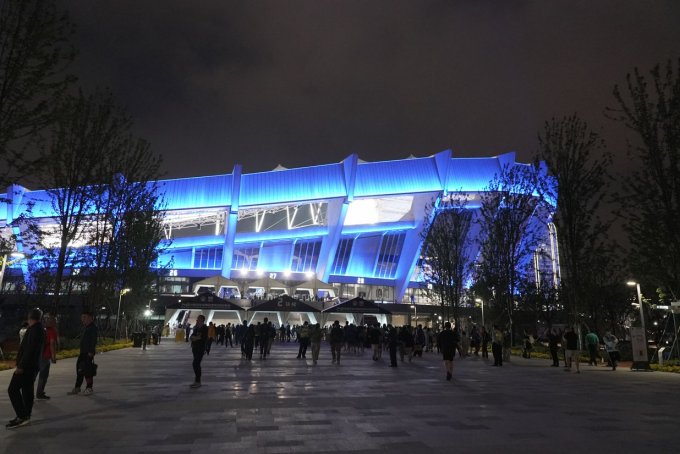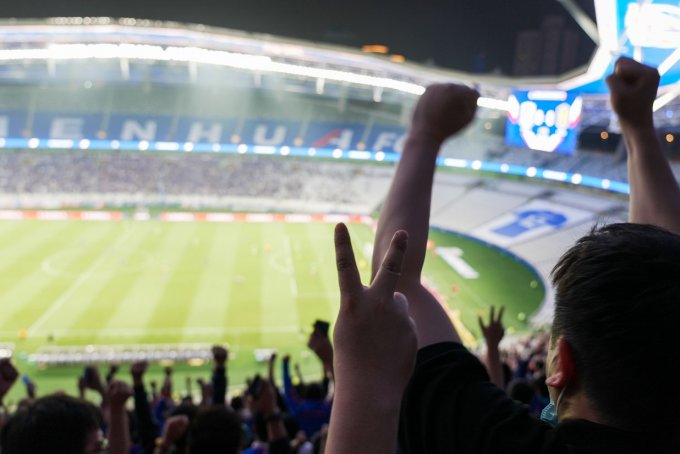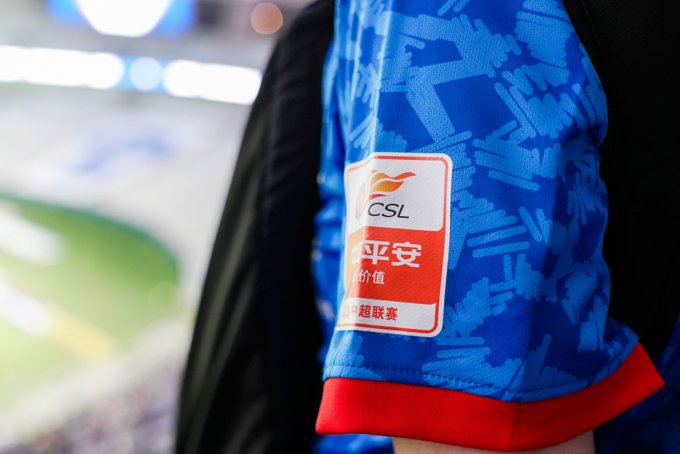It started when you stuck your head in the door at a football match just for a look.
Before you knew it, you turned into a hardcore fan of one of Shanghai's two Chinese Super League (CSL) teams. Every other weekend, you now stand shoulder to shoulder on the terrace with your Shanghainese brethren, curse Beijing Guoan in the local vernacular, belt out songs at the top of your lungs, and get shitfaced with your local buddies as you toast victory or drown the sorrows of defeat. When your club plays on the road, you blaze a trail of chaos across China with your crew, partying through the night on sleeper trains, keeping bemused fellow passengers awake with your football shenanigans.
You hit stadiums in random cities such as Tianjin and Meizhou, making new friends with not just other Shanghai supporters but even opposition fans in awe that some laowai actually pay attention to football in China. Yes. This is all possible and has actually happened.
But wait, wait, wait. Alright, yes, we're getting ahead of ourselves here. Let's start from the beginning.

China Football 101
The Chinese Football Association Super League, aka the Chinese Super League, is the highest tier of professional football in China. For the 2023 season, 16 teams are competing from all over the country; two of these are from Shanghai.

Pick Your Team
First, decide which team you want to support: Shanghai Shenhua or Shanghai Port FC. Shenhua is the city's original team. They've got the most hardcore support and claim to be the real Shanghainese club. They used to play at Hongkou Stadium, but as of this season, they are now at Shanghai Stadium in Xujiahui, which is easy to get to. The facility used to be an athletics stadium but has been hastily converted to football only. The conversion was done on the cheap, and there are still big gaps between the stands and the pitch, where the running track was. But the atmosphere is great. Shenhua fans know how to make some serious noise. Choose Shenhua if you are a football traditionalist, like clubs with subversive fanbases, and want a more intense experience.
Shanghai Port FC used to be called Shanghai SIPG and also played at Shanghai Stadium, but now plays at Pudong Football Stadium, out in Jinqiao. It's a bit of a trek, but there is a station on Line 14 with the same name next to the stadium. It is, however, well worth the trip. Unlike most venues where professional football is played in China, the facility is an actual proper football stadium with excellent sight lines, and the fans are right on top of the action. Frankly, it's a beautiful stadium with a design that amplifies the noise of the crowd. We know; we've been there for a match already.
Port FC is a bit younger than Shenhua but has generally been the stronger and more successful side in recent years. Choose Port if you want something a bit more inclusive, a little more laid-back, and less controversial than their city rivals.

How to Get Tickets
Tickets? Well, things really are starting from zero this season after three years of zero COVID that killed regular CSL business dead. Tickets are now all digital. It used to be pretty easy to just rock up and buy tickets around the stadium on match days, but now it's all via apps, which unfortunately are not in English.
For Shenhua games, search for the Jiushitiyu mini-app on Wechat using the Chinese characters 久事体育. When you open this app, select the 票务 option. The next match should be listed with the time and ticket price. If you can't find anything, try searching for Shanghai Shenhua by the club's Chinese name 上海申花. You can pay online using WeChat, and your ticket will be a QR code with your name and passport number on it. In theory, you are meant to bring your passport with you when you go in; in practice, a picture of it is good enough.
Port FC tickets are available on the Damai 大麦 Wechat Mini app. Just enter the club's Chinese name, 上海海港, into the search bar at the top, and from there, the process is pretty much the same as getting Shenhua tickets.

Going to a Match
So you've got your tickets. What next? For a lot of fans, going to a Chinese football game is all about the pre-match ritual. You can have a great time eating and drinking in a spot where loads of fans go before the match. If it's a weekend night match, things might get rowdy, and there will be singing in the restaurant and lots of ganbei'ing with people you don't know. Just take a moment to feel that anticipation and buzz as everyone imagines what action may be about to unfold later on! Anything can happen in a Chinese football game. And it often does.
But getting the party started before the game is a great way to make sure your evening out is not spoiled by the outcome of the match itself, which is always a distinct possibility, especially if you are a Shenhua fan. However, both teams are playing in new stadiums this year, and everyone is still working out where the pre-match spots actually are. With Shenhua being right in town at Xujiahui, there are plenty of options, and Harley's Bar on Nandan Lu will likely become a pre-game watering hole.
But Port FC's Pudong Stadium is kind of in the middle of nowhere, and there's not a lot going on over there around the stadium. There are facilities in the actual stadium itself, but nothing has been opened yet for the games that have taken place there so far. So it's all early days for both clubs. Keep your ear to the ground; if you're keen enough, you'll find out.
Soon it will be time to head to the stadium itself for the actual game. Matches usually kick off in the evenings, but on weekends there are sometimes games in the afternoon. Budget plenty of time ahead of kick-off; stadiums are quite big, and thanks to the comically large security presence at such games, the shortest route to the gate number on your ticket will be blocked. You may have to spend 20 minutes or more walking around trying to find a way to actually get in. While you are traipsing around, it might be a good time to grab some club merchandise — usually there are vendors selling club scarves, hats, jerseys, what have you, on the street. In fact, there can be all kinds of stuff for sale — whistles, horns, rattles, even binoculars. Just be aware that security checks may be particular about what you take in. Or they might not. You never know!

Getting to Your Seat
Once you are in, find a spot. Generally, you will have to go in the same section indicated on your ticket, but not the exact seat. In some areas, people don't actually use the chairs and stay on their feet. These tend to be the louder and more active areas, where organized fan groups are based. Generally, you need a season ticket to get into these, and sales for these are finished already. But if you befriend the right people, you might find a way in. Guanxi is still alive in 2023, folks!

It's Kick-Off Time
Now you're in. If you arrive in good time, you will be treated to some pre-game raz-matazz, not unlike what you might see before a North American sports match. The bombastic introduction of each player as his video appears on the stadium screen, the blasting out of club songs and anthems over the PA system, lights flashing in club colors over the stadium roof, and general hype to try and get everyone going. Once the game kicks off, it's the fans who take over, especially the "ultras," organized groups in certain parts. Drums, flags, chants, jumping around, and other body movements are all on display as the atmosphere gets ramped right up.
So the game kicks off. And you realize, yes, Chinese football is about so much more than football itself. Which is just as well, as the technical standard can leave something to be desired. But there can also be moments of technical excellence. Generally, the atmosphere at matches is excellent and comparable to anything you'd see in parts of the world where football is huge. Chinese fans may surprise you with their intensity — that quiet guy in the office who moves away from the water cooler as soon as you approach could well be found at the stadium topless, jumping up and down with hundreds of others, constantly yelling and singing the whole time.
Feel like joining in the ruckus? Go right ahead. You may make a spectacle of yourself, but locals greatly appreciate foreign friends supporting their teams.

Respect the Rituals
Should your team win, don't make for the exit straight away. After a brief respite, the players and coach will come to salute the fans by all standing in a line, linking hands, and raising and lowering their arms a few times as the crowd cheers and makes the same gesture in return. A lot of emphasis is placed on this culturally; several foreign players have unwittingly caused offense in the past by heading to the dressing room early and missing this ritual.

Rivalries to Watch
For the matchday experience in general, though, it depends on who the opposition is. The Shanghai Derby (Shenhua vs. Port) is an obvious game to catch if you can get a ticket, and it has an edge to it. Shandong tends to bring a lot of fans to Shanghai, and Zhejiang, who are playing not so far away in Huzhou this year, brings a bit of regional rivalry and an opportunity for fans to abuse each other in local dialect. But many regard the biggest "rivalry" game as Shenhua vs. Beijing Guoan. That one is about so much more than football.

Players to Watch
You might remember that during the 2010s, Chinese clubs splurged astronomical amounts of money on bringing the likes of former Manchester City man Carlos Tevez or Chelsea's Didier Drogba to play in China. Well, all that is pretty much over. Chinese clubs have been told to knock it off and stop burning money they don't have. However, Port still have one-time big signing Oscar playing for them — a Brazilian midfielder who used to play for Chelsea in the English Premiership. Port are unusual in that one of their best players isn't a foreigner; Wu Lei is the club's record top scorer and China's best player by far thanks to his keen eye for goal and superior technical skills.

Shenhua's foreign line-up is like a who's who of everyone you have never heard of: American right back Macario Hing-Glover recently joined from obscure Finnish club SJK, for example. Shenhua, however, had a serious clear-out last season and promoted quite a few promising young players to the first-team squad. Midfielder Xu Haoyang is the pick of the bunch with his sharp passing and impressive awareness. To get the full low-down on who you are watching, Wikipedia does a great job of listing the squads.

...And a Few of the Downsides
We would be remiss not to point out the downsides of the fan experience. Those used to plentiful eating and drinking options at stadia back home will be disappointed; there may be a few stalls selling a paltry selection of soft drinks and unappetizing snacks, but that's it. Sometimes you can sneak beers in, and it's generally no problem to drink them in the stadium as long as you do so from an open container.
One of the biggest annoyances is the comically large amount of security at many games, which can be distracting and intimidating for some. There's not just an army of police at games; the actual army is often brought in for big matches.
Why? Because it is...
Shanghai's new reputation as a city of safety overkill is nowhere more apparent these days than at the football game. Shanghai Stadium can seat 72,000 people, but two-thirds of the stadium is kept empty for reasons nobody seems able to explain. Similarly, the recent Shanghai Derby at Pudong Football Stadium saw only 12,000 fans allowed into a stadium that can hold 33,000. This and the first five rows of both stadiums are kept empty. Talk about a buzzkill.
Anyway, despite all this, there is still fun to be had. What are you waiting for?
Your new life as a Shanghai Ultra awaits...
***

































